In 2023, the oceans broke all-time high temperature records. The waters near Florida alone reached 101°F, similar to a hot tub. The extreme heat, driven by our continued burning of fossil fuels, has catastrophically disrupted complex marine ecosystems and added pressure to species whose populations are already in decline.
Our planet’s biodiversity crisis now threatens two of every five species with extinction, and the loss of ocean biodiversity is especially dangerous. Healthy ocean ecosystems support an astounding array of life, regulate our climate, are home to phytoplankton that produce about half of Earth’s oxygen, and are a central part of economies and cultural practices across the globe.
Ocean ecosystems are essential to our world, and thankfully, we can still chart a new path forward to protect them.
In Pursuit of Abundant Biodiversity
For the benefits that marine species bring to humanity, for their own right to exist, and for the sake of healthy ecosystems and a livable climate, we are confronting the most urgent threats to ocean biodiversity head-on.
With the power of the law, we are working to bring the heat down and to protect and restore the abundant underwater ecosystems that we all need.
This work is strengthened by your partnership, and we are pleased to share some highlights of the progress we have achieved together.
Keeping the marine food web intact
A school of anchovies. Forage fish like anchovies and sardines are a critical food source for whales, dolphins, seabirds, larger fish like salmon, and many other animals. (Evan Spiler / Shutterstock)
Keeping the marine food web intact.
Small but crucial forage fish such as sardines and anchovies are known as “the energy bars of the sea.” They are so vital to the food web that when the anchovy population declined to historic lows between 2013-2016, California sea lion pups starved and brown pelicans faced mass breeding failures.
Forage fish are also essential to human livelihoods: the overfishing of sardines along the West Coast resulted in the fall of the storied Cannery Row in the 1950s and a collapse of the fishing industry in Monterey, California.
Today, outdated fishery management that ignores the critical role these little fish play threatens to hollow out the base of the food web and destabilize West Coast marine ecosystems.
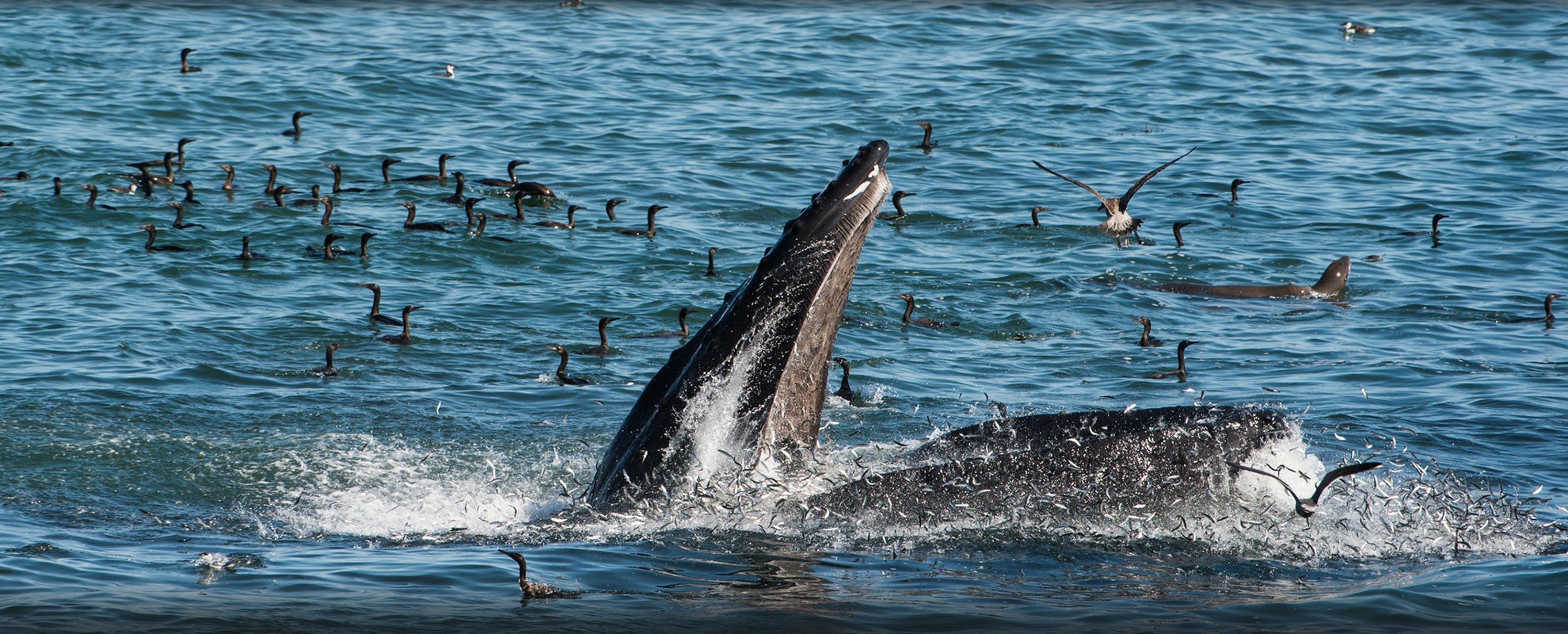
Scientists estimate that the sardine population off California, Oregon, and Washington has declined by over 99% between 2006 and 2021 due to the combined effects of changing ocean conditions and excessive fishing on the already diminishing population.
Yet instead of developing new rules to help the sardine population recover, the National Oceanic and Atmospheric Administration (NOAA) adopted a failed management approach that — according to its own modeling — would not help to restore the sardine population.
We are continuing our decade-long work to protect these fish by challenging NOAA’s inadequate rebuilding plan and advocating for science-based catch limits.
Advocating to address the global threat of illegal, unreported, and unregulated fishing
The oceanic whitetip shark’s population has crashed by 80–95% since the 1990s. We sued to protect them from overfishing, and as a result NOAA instituted gear restrictions that help to limit the catch of this species. (Kaikea Nakachi)
Advocating to address the global threat of illegal, unreported, and unregulated fishing.
Approximately 15–30% of global fishing catch is illegal, unreported, or unregulated (IUU).
As a top seafood importer, the U.S. is uniquely poised to deter global IUU fishing. Recognizing this, Congress passed a law that directs NOAA to identify and potentially sanction countries that engage in IUU fishing and other harmful fishing practices that pressure dwindling fish populations, threaten marine ecosystems, and put law-abiding fishers at a disadvantage.
Prior to our involvement though, no more than 10 countries were identified for IUU fishing in NOAA’s biennial report. After we provided focused advocacy and extensive comments, NOAA’s 2021 IUU fishing report identified 7 nations for issues such as violating international fishery conservation measures and 29 for bycatch (unintentional capture) of protected species.
For the first time, and as we advocated for, NOAA used evidence from non-governmental organizations monitoring the problem and testimony from fishermen, fisheries observers, and undercover investigators in compiling this list.
In 2022, our advocacy focused on shark catch provisions — passed into law in 2011 — that NOAA had never used. We advocated on Capitol Hill in support of amendments to strengthen and expand the law, and we provided NOAA with evidence of shark catch by nations.
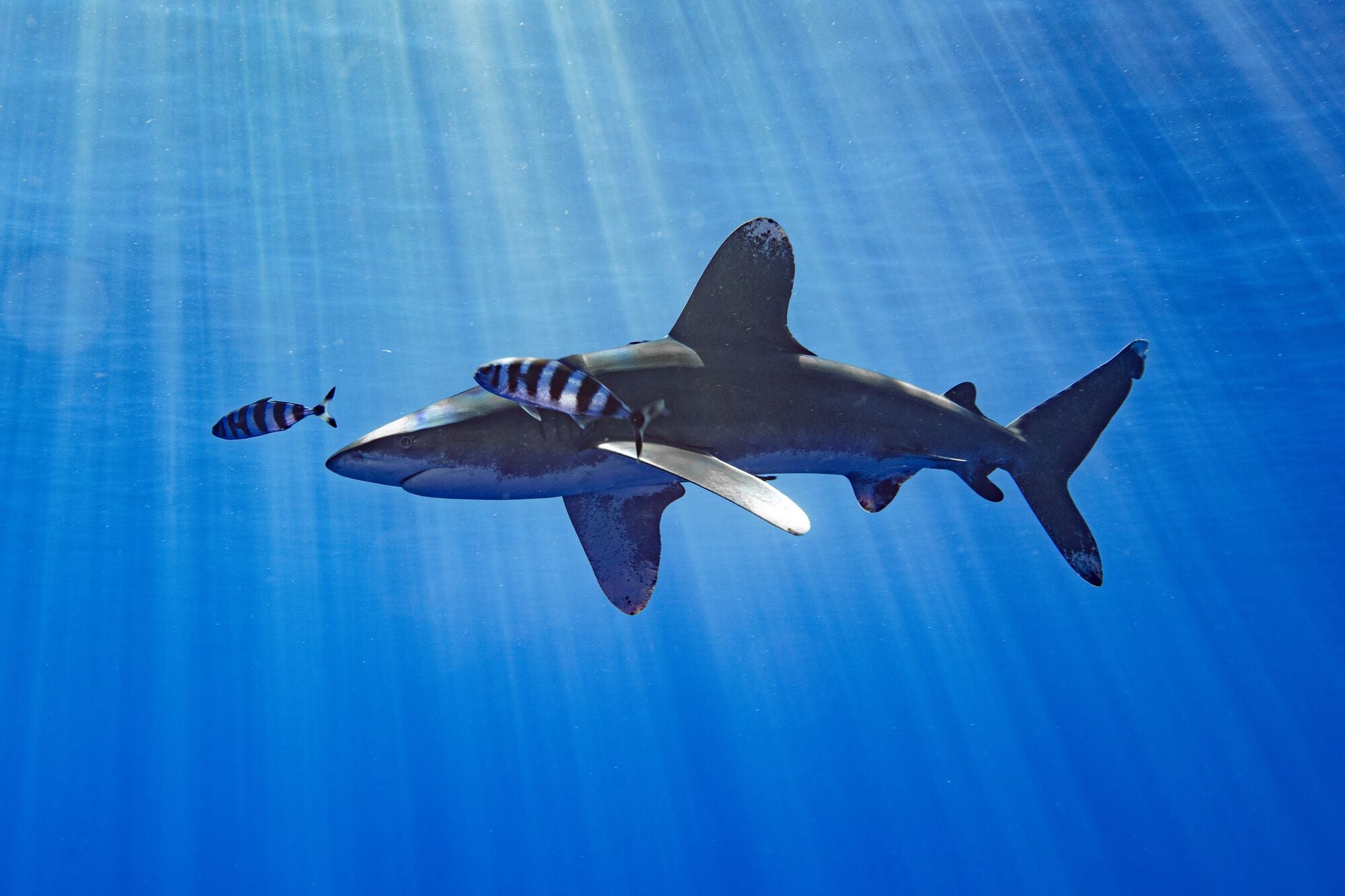
Our efforts were successful. Congress strengthened the law in 2022, and in 2023, NOAA’s IUU fishing report made its first identifications of nations illegally catching sharks.
We’ll continue to fight for sharks and other species by, among other things, pushing NOAA to take the next steps to confront other nations’ harmful fishing practices.
Fighting for one of the world’s most endangered whales in oil country
The Gulf of Mexico whale, also known as Rice’s whale. There are likely only 51 remaining. We’re working to protect this species found nowhere else in the world. (NOAA)
Fighting for one of the world’s most endangered whales in oil country.
Taking on the oil and gas industry means opposing it on its home turf in the offshore waters in the Gulf of Mexico.
Representing Gulf community and environmental groups, we sued the U.S. Department of the Interior in 2023 to challenge two offshore lease sales that each offered up more than 73 million acres in the Gulf of Mexico for oil and gas development.
The department did not consider the health threats to communities living near the oil refineries and other polluting drilling infrastructure that additional leasing would support for years to come. It also failed to adequately consider the climate impacts. These lease sales could result in the production of more than a billion barrels of oil and four trillion cubic feet of methane gas over the next 50 years.
And the sales threaten the habitat of a whale species only discovered in 2021: the Gulf of Mexico whale, also known as Rice’s whale. This is one of the world’s most endangered whales, with likely only 51 individuals left.
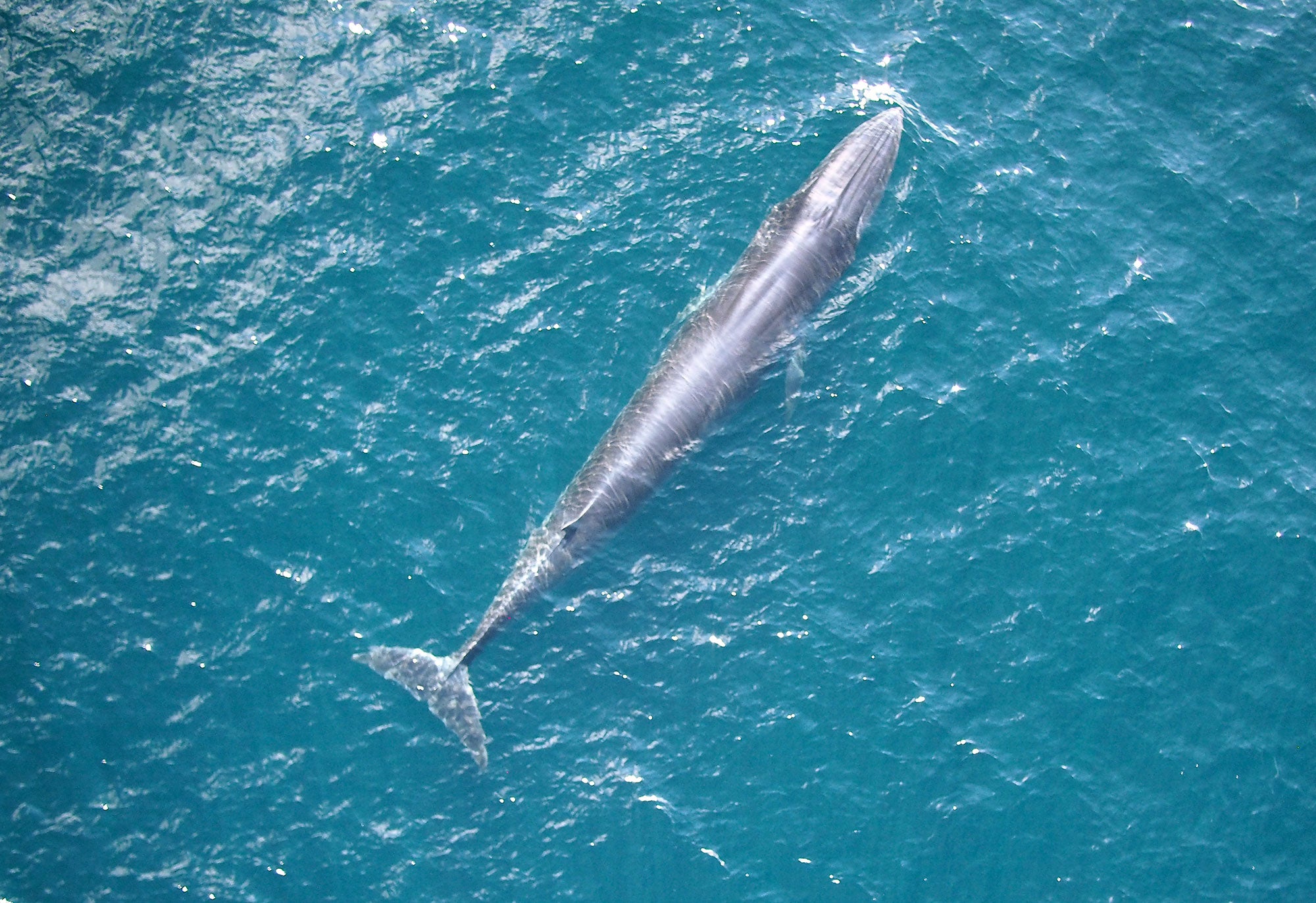
Unlike other large migratory whales, the Rice’s whale stays year-round in a defined band of habitat stretching across the northern Gulf, leaving it particularly vulnerable to harm from offshore drilling.
As a result of our work, the Interior Department recently took some initial steps to protect the whales and their habitat, but even these bare minimum measures were challenged by the oil industry.
We are in court again to protect this rare whale and to push back against the fossil fuel industry’s harms to communities and our climate.
Safeguarding the oceans from deep-sea mining
A sea cucumber on top of mineral-rich nodules on the seafloor. These nodules are part of a fragile deep-sea ecosystem, with species living in, on, and around them. (GEOMAR / CC BY 4.0)
Safeguarding the oceans from deep-sea mining.
Thousands of meters below the ocean’s surface, amid the glowing lures of anglerfish, deep-sea coral gardens, and thousands of other species, there lies a wealth of mineral-rich nodules on the seafloor.
Concentrated in an expanse of open ocean stretching from Hawai‘i to the Pacific Coast of Mexico, these nodules contain so-called “critical” minerals, including cobalt, lithium, and nickel.
These minerals are in high demand; they are currently sought for clean energy technologies such as electric vehicles, wind turbines, and solar panels and batteries. And in the wake of the U.S.’ landmark investment in climate and clean energy solutions, the 2022 Inflation Reduction Act (IRA), that demand has skyrocketed.
Now, corporations are pushing to start industrial-scale ocean mining to benefit from IRA incentives and reap big profits.
This push brazenly disregards the fact that we can’t safely mine the deep sea. We don’t know enough: we are still discovering thousands of new species there and do not fully understand how mining would harm the ocean’s ecosystems through huge sediment plumes and other impacts. Mining could irreparably damage marine carbon cycles, which help to absorb and “sink” carbon that is warming our atmosphere.
And the traditions, livelihoods, and way of life for Pacific Islander communities on the frontlines of the area targeted for mining are at risk.
We are working with a coalition of conservation and Indigenous groups, nations, scientists, and policymakers to urge the International Seabed Authority to issue a deep-sea mining moratorium until we know more.
We are also endorsing protective federal legislation and working in Congress and with the Biden administration to advocate for better mineral recycling, demand reduction, and other sustainable policies.
We will ramp up the pressure until we can meet the needs of our clean energy transformation while protecting our planet’s priceless oceans.
Fights on the Horizon
We’re also working to protect biodiversity by:
Reducing whale and sea turtle entanglements in crab-fishing gear off the California coast
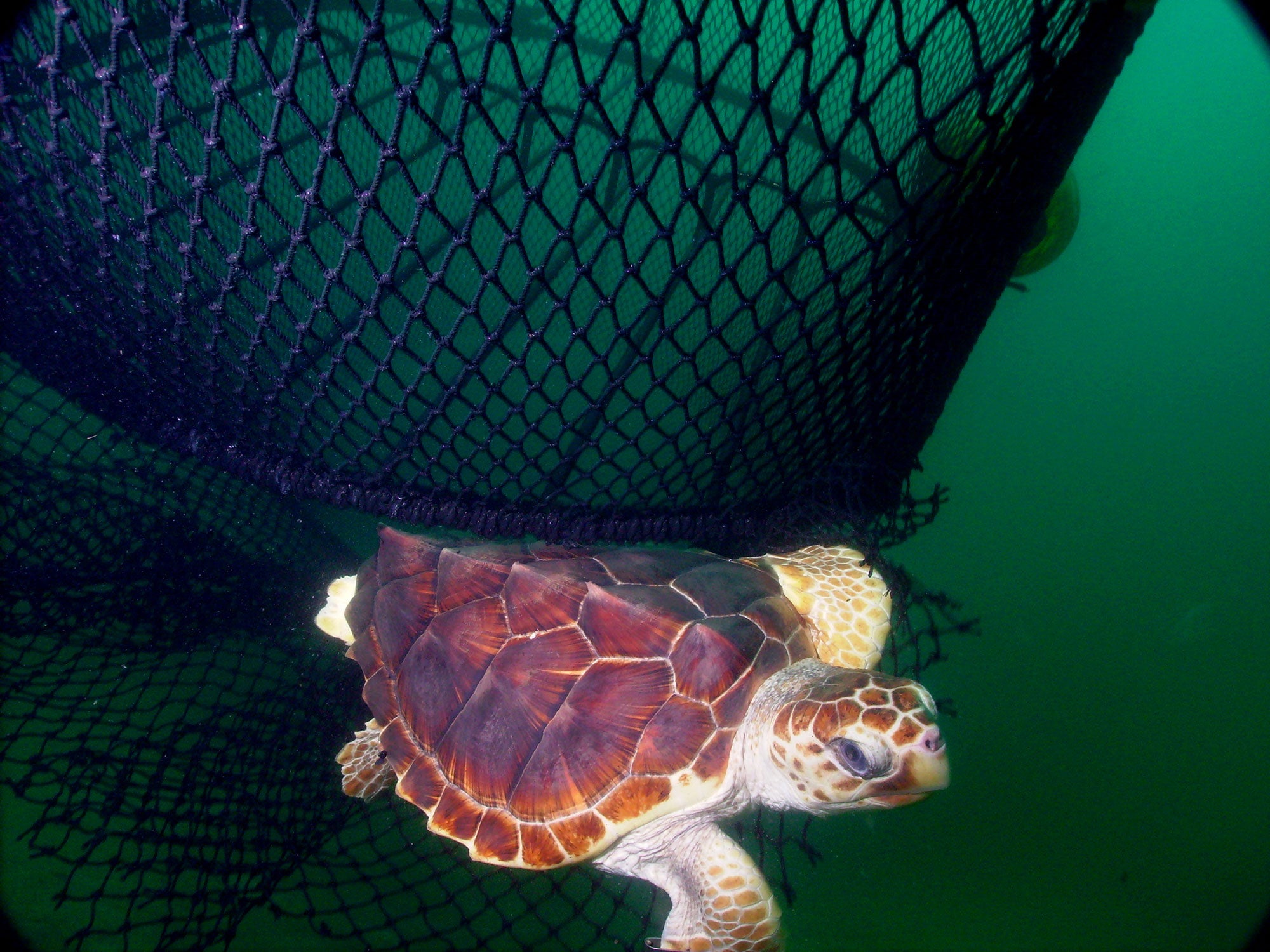
Promoting science- and ecosystem-based management of sharks and combating efforts to promote shark culling
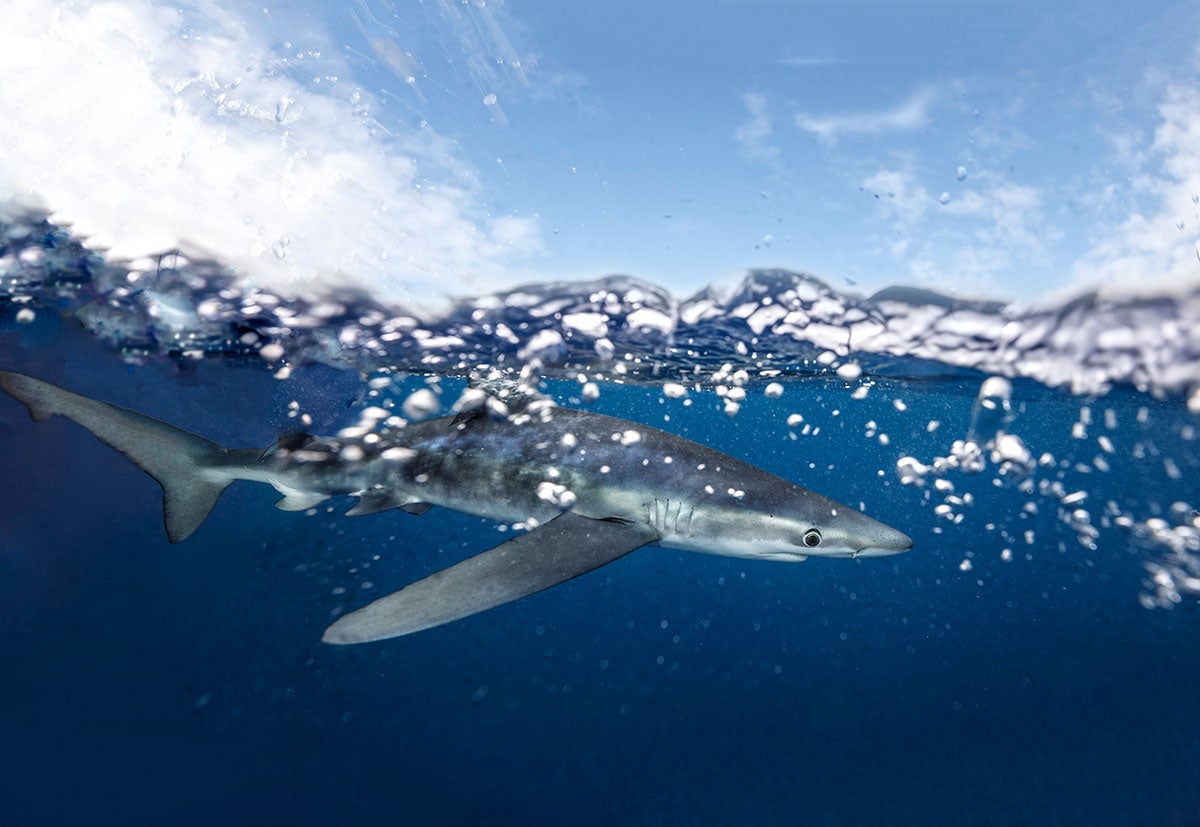
Advocating for coral reef protections and restoration as human stressors including climate change, fishing, and pollution have reduced live corals by half over the last 150 years
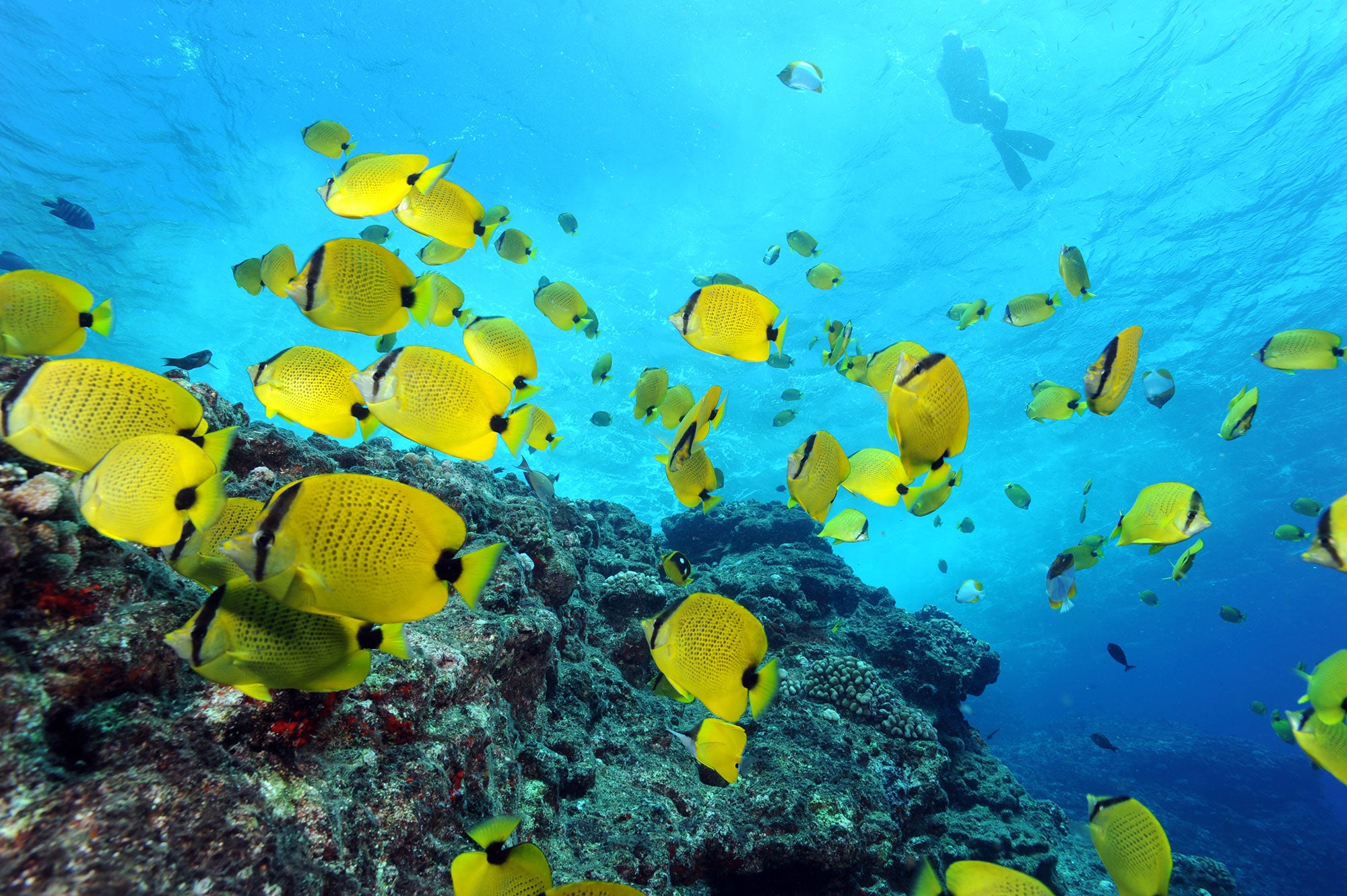
Defending the Atlantic Ocean’s only Marine National Monument, the Northeast Canyons and Seamounts, from industry attack
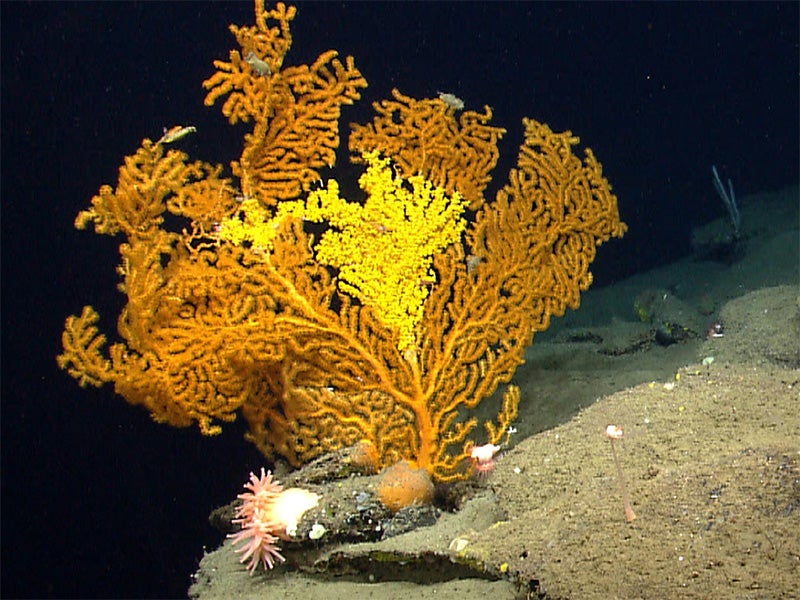
A Sea Change
Some people have treated the oceans as a boundless resource, impervious to harm. The accelerating biodiversity crisis has shown the limits of this thinking.
Yet our oceans are extraordinary and resilient, and we can still protect them — and ourselves.
With you by our side, we, our partners, and our clients are safeguarding the oceans that define and sustain our world. Thank you for being here with us.
Cockatoo squid at 527m depth along the Gulf of Alaska continental slope. (NOAA / UAF / Oceaneering)
Written by Shayna Yatsushiro, an associate writer at Earthjustice
Justice Partners are passionate and engaged supporters of Earthjustice who are serious about making the world a better place. Learn more.
Earthjustice’s Oceans Program uses the power of the law to safeguard imperiled marine life, reform fisheries management, stop the expansion of offshore oil and gas drilling, and increase the resiliency of ocean ecosystems to climate change.
